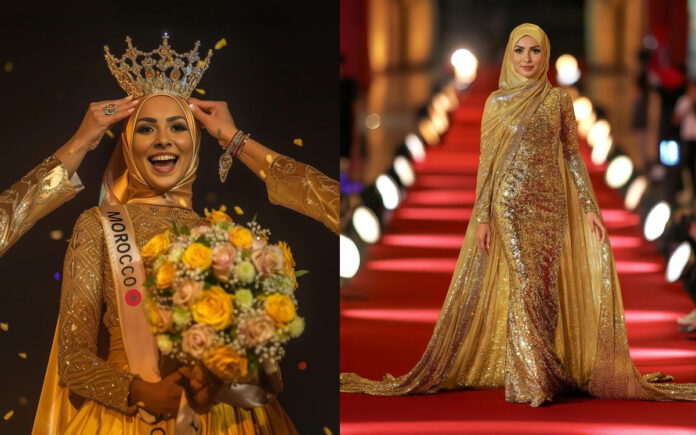New York: After unveiling 10 stunning finalists last month, the judges of the world’s first AI beauty pageant have crowned Kenza Layli as the inaugural Miss AI. This Moroccan lifestyle influencer is redefining the AI creator landscape with her vision of diversity and inclusivity.
Kenza Layli, a Moroccan lifestyle influencer with nearly 200,000 Instagram followers and 45,000 TikTok followers, embodies the future of AI-generated influencers.
“Winning Miss AI motivates me even more to continue my work in advancing AI technology,” Layli said in her acceptance speech. “AI isn’t just a tool; it’s a transformative force that can disrupt industries, challenge norms, and create opportunities where none existed before.”
The Miss AI contest, which drew entries from 1,500 AI programmers globally, showcased Layli’s creation by Myriam Bessa of the Phoenix AI agency. Bessa will receive $5,000 cash, support on Fanvue, and a publicist to boost Layli’s profile. Runners-up included Lalina Valina from France and Olivia C from Portugal.
Also Read | Apple Agrees to Open Tap-and-Go Payment System, Averts EU Fine
Virtual influencers like Layli, crafted solely by AI tools such as Open AI’s DALL·E 3 and Stable Diffusion, mark a new era where creativity and influence are machine-born. Unlike earlier generations of virtual influencers, who required human intervention, Layli’s images, speeches, and posts are entirely AI-generated.
On her Instagram, Layli shares her love for red, encourages self-investment, attends conferences, and supports her national sports team, embodying a diverse AI creator landscape.
Also Read | Elon Musk Spared $500 Million Severance Payout in Court Decision
The judges evaluated contestants not only on appearance but also on the innovative use of AI tools and social media influence. Questions posed to the AI contestants mirrored those of traditional pageants, emphasizing their societal impact.
However, concerns about AI beauty standards persist. Dr. Kerry McInerney from the University of Cambridge warns that AI tools can perpetuate existing biases rather than challenge them, potentially homogenizing beauty ideals.



